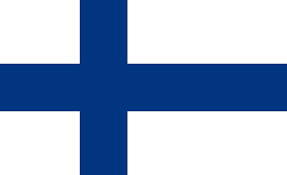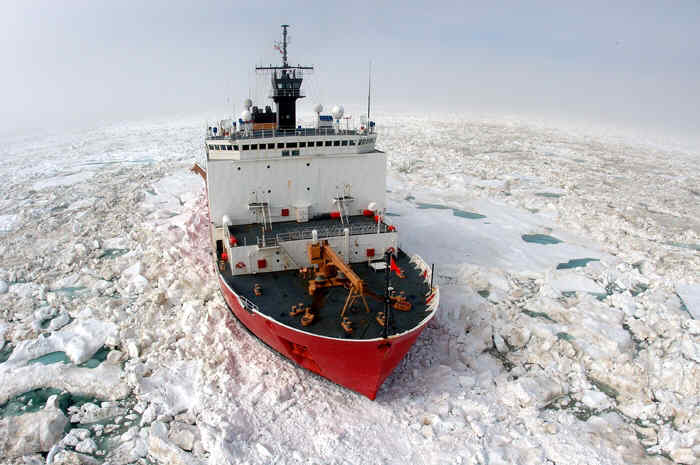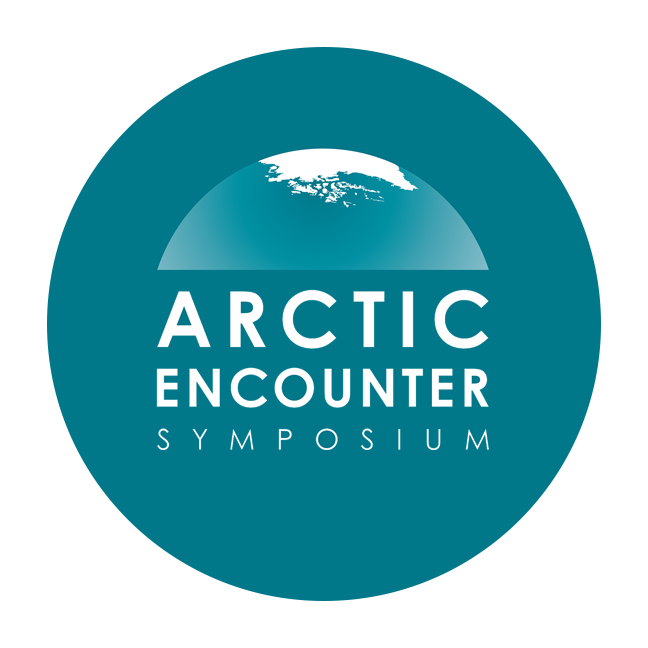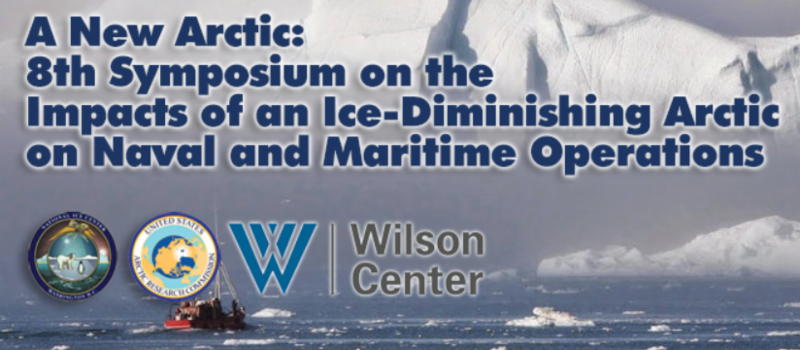|
|
|
|
|
|
|
|
|
No Arctic-science events are scheduled for today.
|
Media
The Arctic Island that Disappeared. The island was located near the Graham Bell Island in Franz Josef Land, the remote Russian Arctic archipelago, and had a name that means "the mother of pearls." It had a round shape and a diameter of 1,5 km. Its highest point was 22 meter above sea level. And it was all covered by a glacier. The Barents Observer
 Going Greener: Finland's New Gas-Fuelled Icebreaker. Going Greener: Finland's New Gas-Fuelled Icebreaker. The steel behemoth pushes ahead, crunching the ice as it navigates the northernmost tip of the Baltic, considered one of the most polluted seas in the world. But unlike other icebreakers spewing diesel, this state-of-the-art ship boasts cleaner fuel. In the freezing darkness of a February morning, the immense Polaris, which at 10,000 tones weighs more than the Eiffel Tower, ploughs effortlessly through the half-meter (20-inch) thick ice. Phys.org
Report: Russia Building Drone to Monitor Arctic. Russia is working on creating an unmanned aerial vehicle (UAV) that can stay in flight for four days and work in Arctic weather, Defense One reports. Additionally, specialists of the Advanced Research Foundation are developing technology that allow vertical and ultrashort takeoff and landing. Newsmax
 Congress Oks Money to Build an Arctic Icebreaker and More Coast Guard Cutters for Alaska. Congress Oks Money to Build an Arctic Icebreaker and More Coast Guard Cutters for Alaska. The spending package Congress passed last week to avoid another government shutdown provides $655 million for construction of the first polar icebreaker in decades and additional money for new Coast Guard cutters in Alaska, Sen. Dan Sullivan's office said. It's the first time in 40 years the nation is building a new icebreaker, and more will be built in the future, Sullivan, R-Alaska, said Thursday. Anchorage Daily News
Report to Congress on Coast Guard Polar Security Cutter Program. The Coast Guard Polar Security Cutter (PSC) program, previously known as the polar icebreaker (PIB) program, is a program to acquire three new heavy polar icebreakers, to be followed years from now by the acquisition of up to three new medium polar icebreakers. The Coast Guard wants to begin construction of the first new heavy polar icebreaker in FY2019 and have it enter service in 2023. The PSC program has received about $359.6 million in acquisition funding through FY2018, including $300 million provided through the Navy's shipbuilding account and $59.6 million provided through the Coast Guard's acquisition account. USNI News
Floating Particles May Play Role in Mitigating Loss of Arctic Sea Ice, New Study Shows. Waves created by melting Arctic sea ice may not worsen the loss of additional ice as much as has been speculated in the past, according to new research from the University of Alberta. Bruce Sutherland, an expert in geophysical fluid dynamics, conducted a study that showed floating particles dampen surface waves and remove the energy they release. "If you drink a margarita with rocks or slush, you'll notice that it does not slosh around as much as a glass of water," explained Sutherland. Folio
|
|
Future Events
 of the AAG includes over 8,500 geographers converging from the U.S., Canada, and nearly 60 other countries in a typical year including geographers, GIS specialists, environmental scientists, and other leaders for the latest in research and applications in geography, sustainability, and GIScience. of the AAG includes over 8,500 geographers converging from the U.S., Canada, and nearly 60 other countries in a typical year including geographers, GIS specialists, environmental scientists, and other leaders for the latest in research and applications in geography, sustainability, and GIScience.
 The 6th Annual Arctic Encounter Seattle, April 25-26, 2019 (Seattle, WA, USA). The sixth annual Arctic Encounter Seattle will engage the topic of innovation in the Arctic, specifically disruptive business and investment models, energy and power, climate research, national security, new economic and trade models, and popular media and awareness movements impacting the Far North. The 2018 Arctic Encounter Seattle drew over 300 participants from across Alaska, the U.S., and the world, including over 100 speakers, 32 sponsors, 11 media partners, fashion and photography installations, a live permafrost exhibition, 13 guest performers, fashion designers, and artist exhibitors to the downtown Seattle waterfront at Pier 66. The 2019 Arctic Encounter Seattle expects to increase engagement in new sectors and engage participants through policy debates, research presentations, performances, and more. The two-day Arctic Encounter Seattle will include an opening reception, two continental breakfasts, two keynote luncheons, a networking reception with Alaskan glacier ice cocktails, and a seated three course dinner including keynotes and live musical entertainment from the Far North. The Arctic Encounter is the largest annual Arctic policy and business conference convening in the United States, with partnerships and convening efforts worldwide. Registration is now open. Additional information is available here. The 6th Annual Arctic Encounter Seattle, April 25-26, 2019 (Seattle, WA, USA). The sixth annual Arctic Encounter Seattle will engage the topic of innovation in the Arctic, specifically disruptive business and investment models, energy and power, climate research, national security, new economic and trade models, and popular media and awareness movements impacting the Far North. The 2018 Arctic Encounter Seattle drew over 300 participants from across Alaska, the U.S., and the world, including over 100 speakers, 32 sponsors, 11 media partners, fashion and photography installations, a live permafrost exhibition, 13 guest performers, fashion designers, and artist exhibitors to the downtown Seattle waterfront at Pier 66. The 2019 Arctic Encounter Seattle expects to increase engagement in new sectors and engage participants through policy debates, research presentations, performances, and more. The two-day Arctic Encounter Seattle will include an opening reception, two continental breakfasts, two keynote luncheons, a networking reception with Alaskan glacier ice cocktails, and a seated three course dinner including keynotes and live musical entertainment from the Far North. The Arctic Encounter is the largest annual Arctic policy and business conference convening in the United States, with partnerships and convening efforts worldwide. Registration is now open. Additional information is available here.
North X North Festival, May 1-5, 2019 (Anchorage, Alaska USA).The third annual North x North Summit & Festival celebrates connection and culture across the North. The event features five days of conversations, workshops, exhibitions, performances, presentations, music, dance, installations, food, film and experiences highlighting Northern people, landscapes and cultures.The Summit (May 1-2), which is open to registered participants, focuses on resilience and research, with a special emphasis on gender and Indigenizing. The Festival (May 3-5) is open to the general public and features activities and conversations around climate, gender, innovation, food, indigenizing and earthquakes.
Lowell Wakefield Fisheries Symposium, May 7-10, 2019 (Anchorage, Alaska USA). This symposium aims to provide a forum for discussion on ways to facilitate effective cooperative research, a platform for scientific talks on the application and results of cooperative research, and opportunity to evaluate how such research might be best envisioned, applied and implemented. The symposium aims to involve participants from a variety of relevant marine industries, address these issues through facilitated discussion, identify best practices, and articulate a set of case studies for effective collaboration. The symposium also aims to involve scientists from a wide range of sectors, including state and federal agencies, universities, research institutes and industry science. This event is sponsored by Alaska Sea Grant College Program.
Arctic Science Summit Week, May 22-30, 2019 (Arkhangelsk, Russia). The Arctic Science Summit Week 2019 will take place in Northern (Arctic) Federal University and Northern State Medical University, Russia, Arkhangelsk. Under the auspices of International Arctic Science Committee, participants from more than 23 countries and regions will be involved.
Save the Date! 
Mark your calendars to attend IDA-8, which some have called one of the best Arctic gatherings around. Historically, this biennial symposium was co-hosted by U.S. National/Naval Ice Center (NIC) and the US Arctic Research Commission (USARC). In 2019, these partners will join forces with the preeminent Wilson Center's Polar Institute, as a third co-host. The now 2-day symposium will be held in the Ronald Reagan Building Amphitheater, in Washington, DC. The event will focus on a broad cross-section of naval and maritime operations and issues in an ice-diminishing Arctic. The symposium brings together nationally and internationally recognized experts on Arctic governance, geopolitics, marine operations, infrastructure, science, and environmental observations, from the local, regional, and pan-Arctic scale. Information on prior symposia, including lists of speakers, video clips, and copies of presentations, is available here. Attendance is free, and registration will begin in Spring 2019. The event will be webcast live, and video recorded.
|
|

  
4350 N. Fairfax Drive, Suite 510
Arlington, VA 22203, USA
External links in this publication, and on the USARC's World Wide Web site ( www.arctic.gov) do not constitute endorsement by the US Arctic Research Commission of external Web sites or the information, products or services contained therein. For other than authorized activities, the USARC does not exercise any editorial control over the information you may find at these locations. These links are provided consistent with the stated purpose of this newsletter and the USARC Web site.
|
|
|
|
|
|
|
|
|